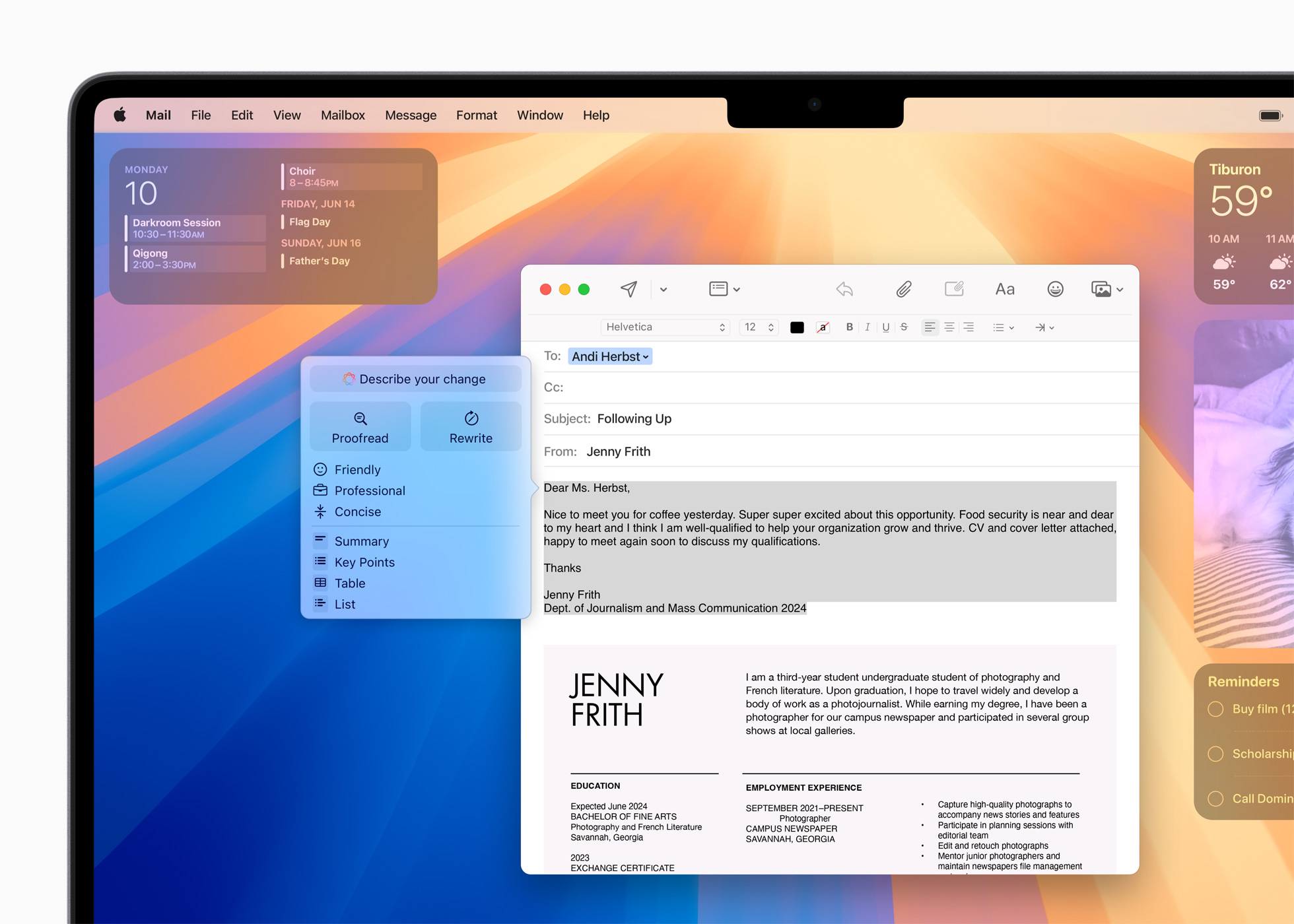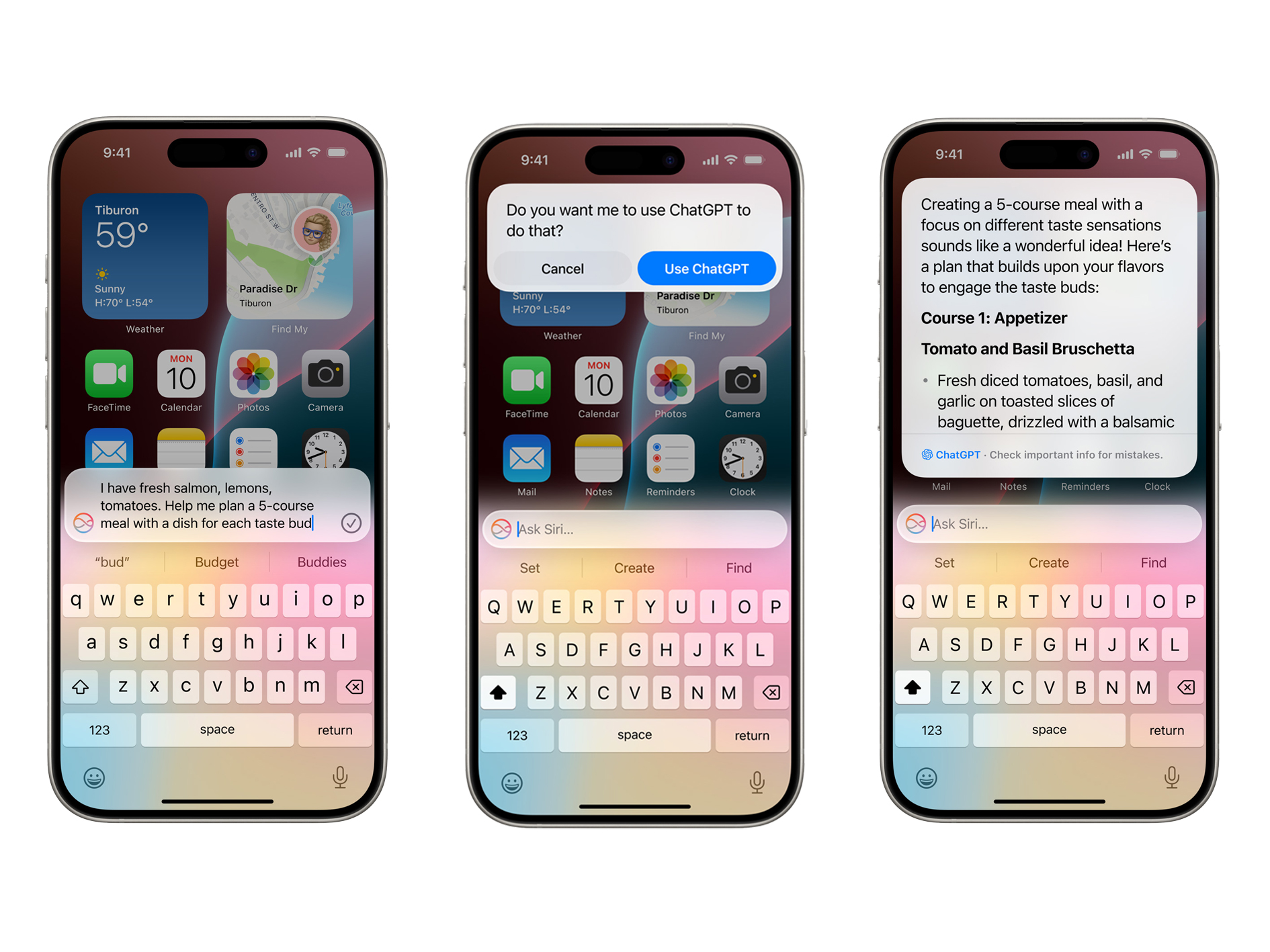
Apple has been intentionally sluggish when it comes to rolling out its new AI features, and it has recently run into some obstacles.
Apple Intelligence was introduced by the tech giant in mid-June as "the personal intelligence system that puts power generative models at the core of iPhone, iPad, and Mac".
But what exactly does that mean, and where exactly is it?
What is Apple Intelligence
According an Apple press release dated June 10, the new tech is "deeply integrated" into iOS 18, iPadOS 18 and macOS Sequoia, using the power of Apple silicon "to understand and create language and images, take action across apps, and draw from personal context to simplify and accelerate everyday tasks."
Among the uses promoted in June were tools to help with text creation, as well as a "new era" for Siri, with the new version including "richer language-understanding capabilities" as well as the ability to be "more natural, more contextually relevant and more personal".
Describing himself as "thrilled", Apple CEO Tim Cook said of the launch:
"Our unique approach combines generative AI with a user's personal context to deliver truly helpful intelligence. And it can access that information in a completely private and secure way to help users do the things that matter most to them. This is AI as only Apple can deliver it, and we can't wait for users to experience what it can do."

What's been going on
In late June it was announced that Apple would withhold the release of new features, such as its Apple Intelligence generative AI tools, across the European Union (EU) due to concerns over regulations with the bloc’s Digital Markets Act (DMA).
The company will also halt the release of iPhone Mirroring and SharePlay Screen Sharing in the EU.
Last year the European Commission branded Apple, among other companies such as Amazon and Microsoft as "gatekeepers", providing services judged to be important links between consumers and businesses.
This means those companies deemed "gatekeepers" must comply with a set of rules outlined in the DMA – most of which require a six-month deployment period.
Failure to comply with DMA regulations would result in fines of up to 10% of the company's worldwide annual turnover, rising to 20% for repeat infringements.

In a statement to Bloomberg, Apple expressed its concern "that the interoperability requirements of the DMA could force us to compromise the integrity of our products in ways that risk user privacy and data security".
These delays in Europe are compounded by more recent delays in the US, due to concerns over the stability of the new features.
Despite Apple's press release in June, it is now expected that the iOS 18 and associated iPad system will now launch without the Apple Intelligence in September – and sources suggest that the commercial release will follow in October.
Apple has also signed itself up to a set of voluntary commitments created to enhance AI safety, putting itself alongside 15 other companies including Amazon and OpenAI that have agreed to comply with new guidelines.
The commitments included agreeing to internal and external security testing of AI systems before their release, and being open and collaborative in sharing information about managing AI risks with industry, academia and government.
The initiative aims to combat harmful, problematic and abusive AI-generated content.
Take a look at our guides to the best iPhone for photography, the best AI image generators, and the best iPhone charger cable.







